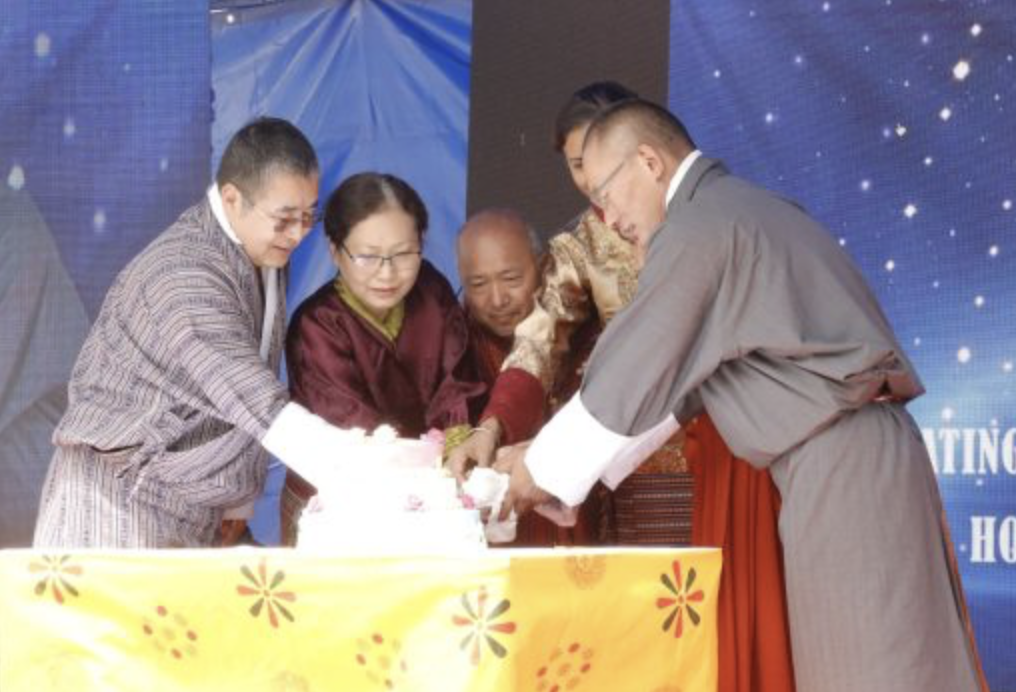Marking 25 years, Bhutan’s Health Trust Fund reaffirmed its role in financing free healthcare, having ensured Nu. 3.7B for drugs and vaccines. Despite sustainability challenges, it targets innovation, digital tools, and wider investments to secure resilience and equity for the next decades.
The Bhutan Health Trust Fund (BHTF) celebrated its 25th anniversary on August 3, 2025, with a grand public event at Thimphu’s Clock Tower, attended by Prime Minister Tshering Tobgay, Health Minister Lyonpo Tandin Wangchuk, healthcare professionals, civil society, and the general public. The occasion symbolized a quarter-century of commitment to providing free, equitable healthcare to all Bhutanese and highlighted the Fund’s pivotal role in transforming the country’s health sector.
Since its establishment in 2000, the BHTF has become a cornerstone of Bhutan’s healthcare system by financing the uninterrupted supply of essential medicines and vaccines. Reducing dependence on foreign aid, the Fund embodies the nation’s philosophy of Gross National Happiness by linking well-being directly to free access to quality healthcare. Over the past 25 years, the BHTF disbursed Nu. 3.7 billion, ensuring steady delivery of drugs and vaccines, even during global crises such as the COVID-19 pandemic. Prime Minister Tshering Tobgay and Health Minister Tandin Wangchuk lauded the Fund’s achievements, emphasizing its role in reducing maternal and child mortality, improving immunization coverage, and safeguarding health security.
BHTF’s contributions include major public health milestones, such as achieving 98% coverage in the 2006 Measles and Rubella campaign, financing the HPV vaccine rollout in 2017 that reached nearly all eligible girls, and supporting the introduction of Pentavalent and PCV13 vaccines, which now cover 97% of children and have dramatically lowered child mortality from preventable diseases. Today, the Fund supports 430 essential drugs and four vaccines, disbursing close to Nu. 557.73 million annually in support of Bhutan’s free primary healthcare system.
Despite its successes, sustainability remains a challenge. Rising global medical costs, limited domestic investment opportunities, declining donor interest, and low public awareness threaten its long-term viability. Program Officer Tshering Choden explained that fundraising becomes even more difficult during periods of economic hardship. The pandemic underscored the necessity of resilient, locally managed health financing mechanisms like the BHTF, proving its worth as a bulwark against external shocks.
Looking to the future, the BHTF has developed a Three-Year Strategic Plan focused on diversifying investments, enhancing public engagement, and leveraging emerging technologies to strengthen transparency and accountability. Plans include expanding the investment base domestically and internationally, boosting advocacy to increase awareness of the Fund’s role, and adopting digital technologies to improve financial monitoring and build public trust. Public-private partnerships are also seen as promising avenues for broadening resources and diversifying donor pools.
The anniversary event was not only a celebration but also a reaffirmation of Bhutan’s political commitment to sustaining free healthcare as a fundamental right. With high-level backing, the Fund aims to enter a new phase marked by innovation and closer engagement with citizens and partners. Its long-term vision is to ensure that as Bhutan navigates future global health and economic challenges, the BHTF continues to stand as a pillar of equity, resilience, and sustainability.



